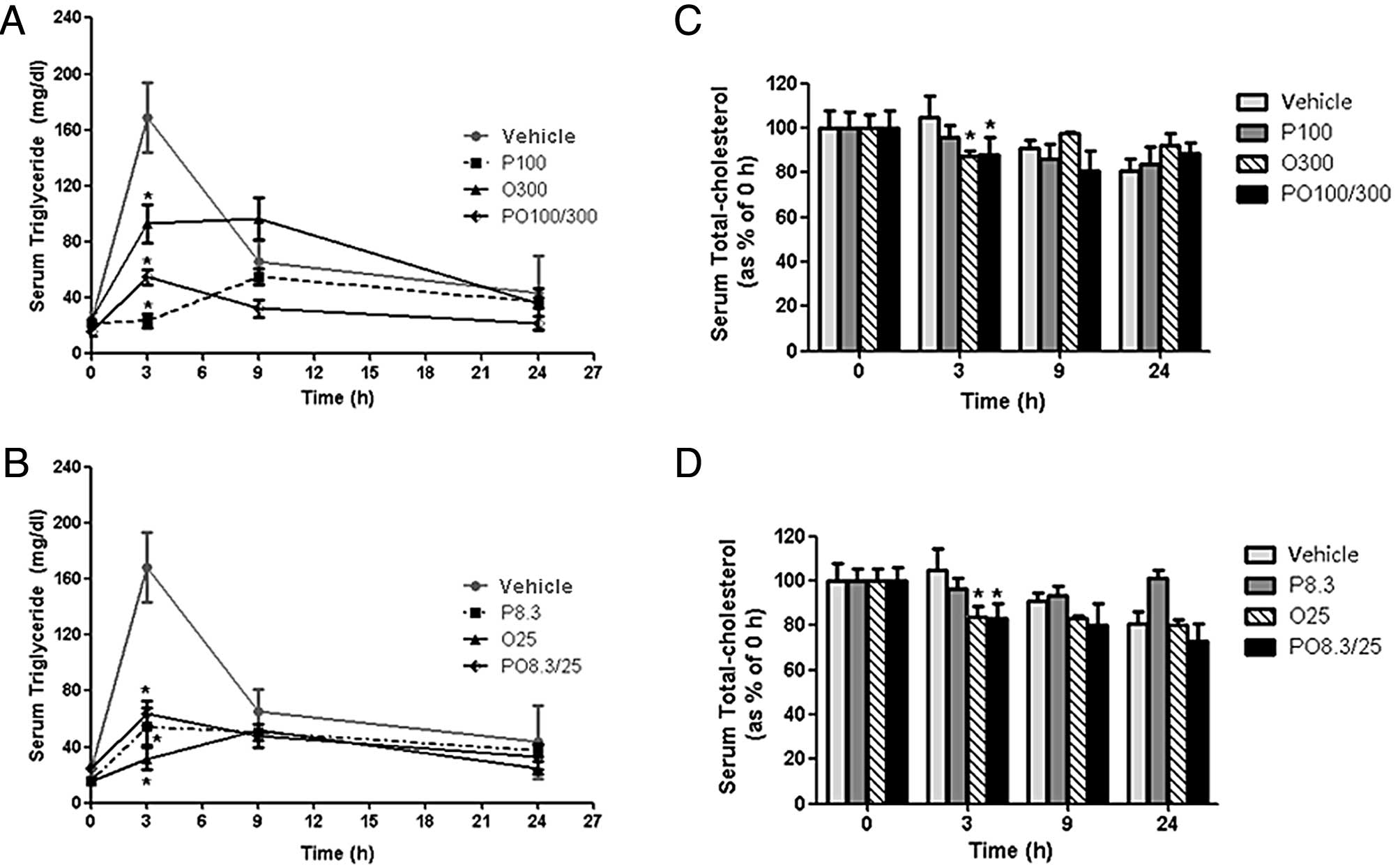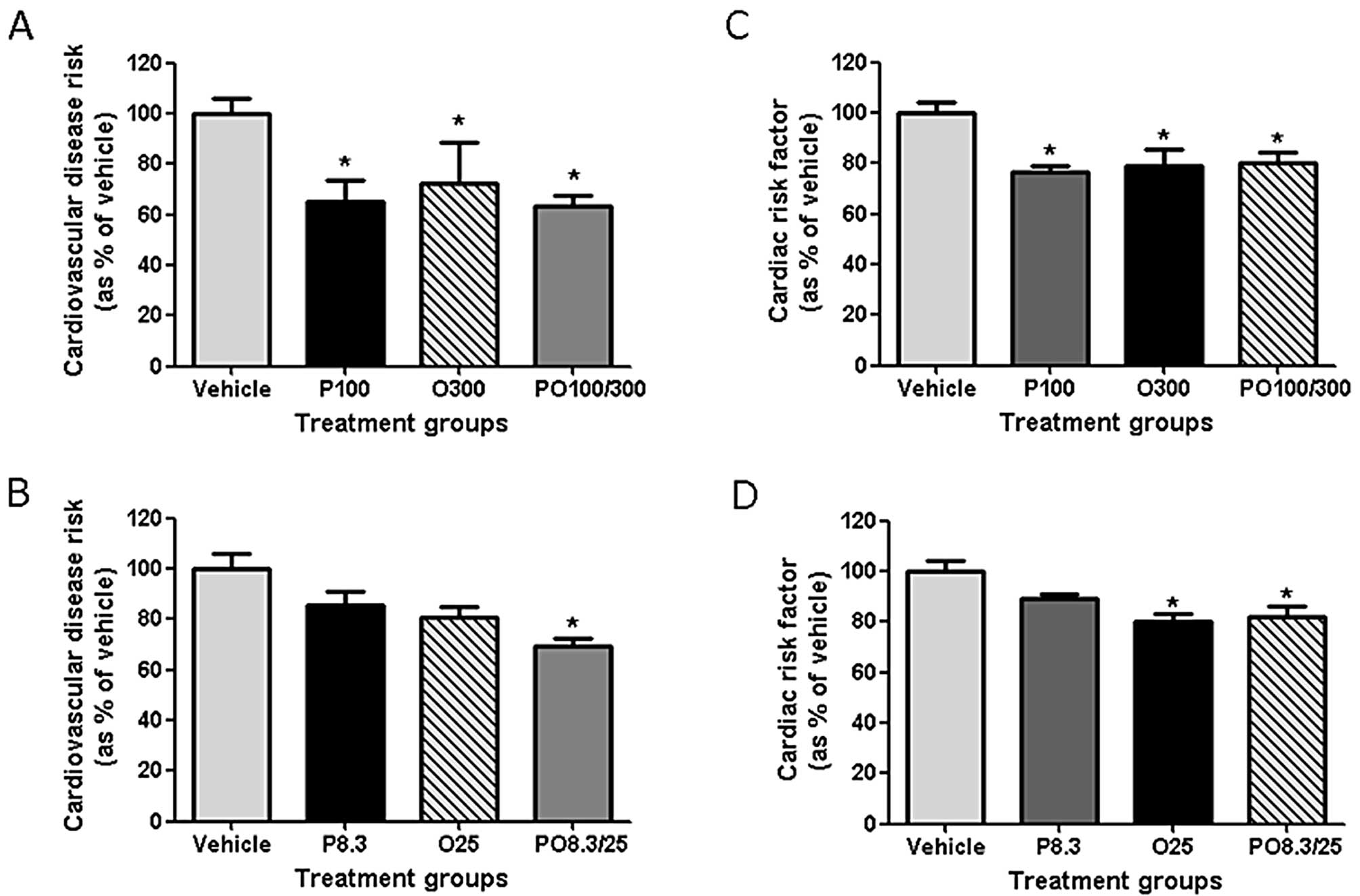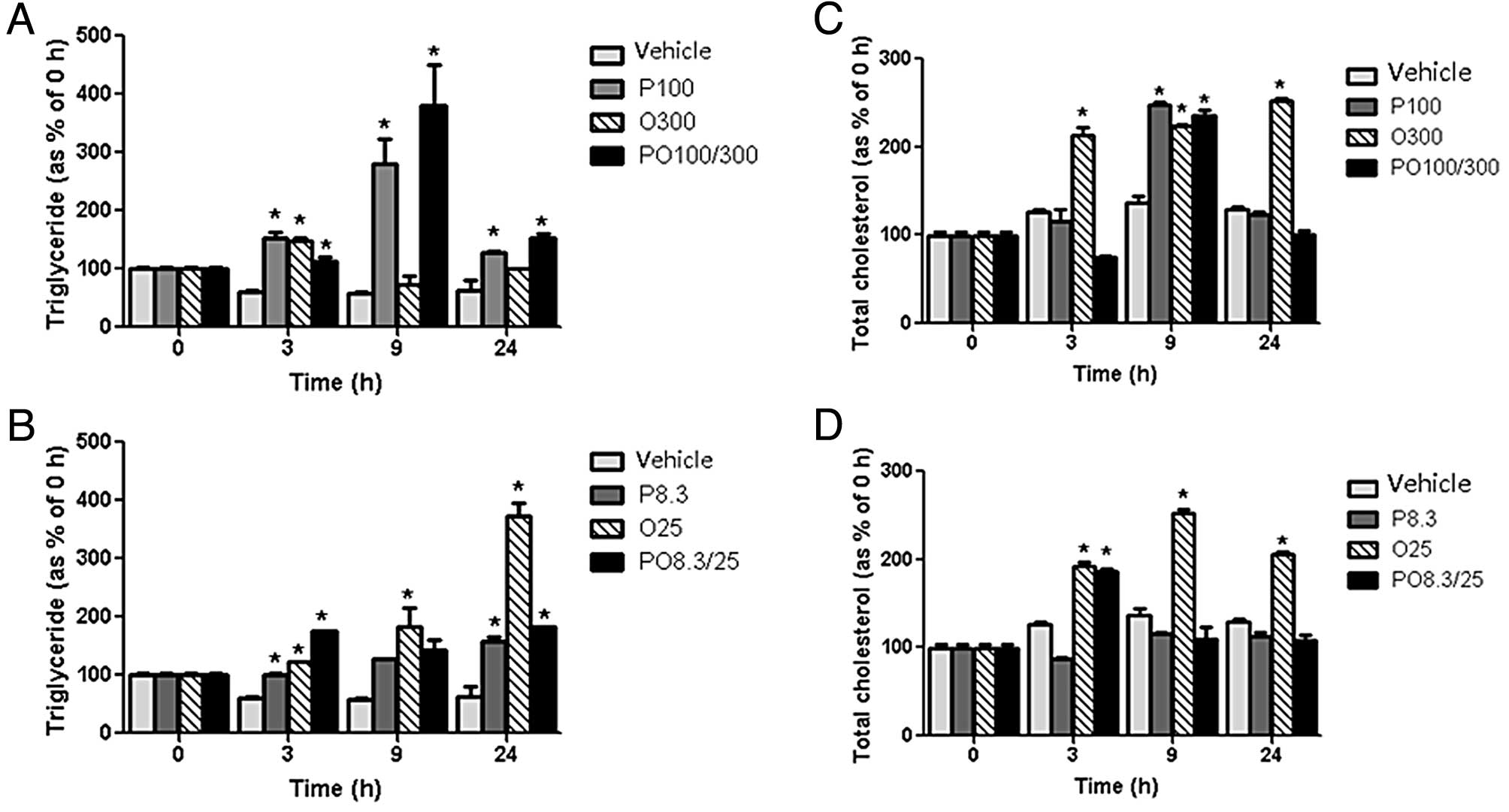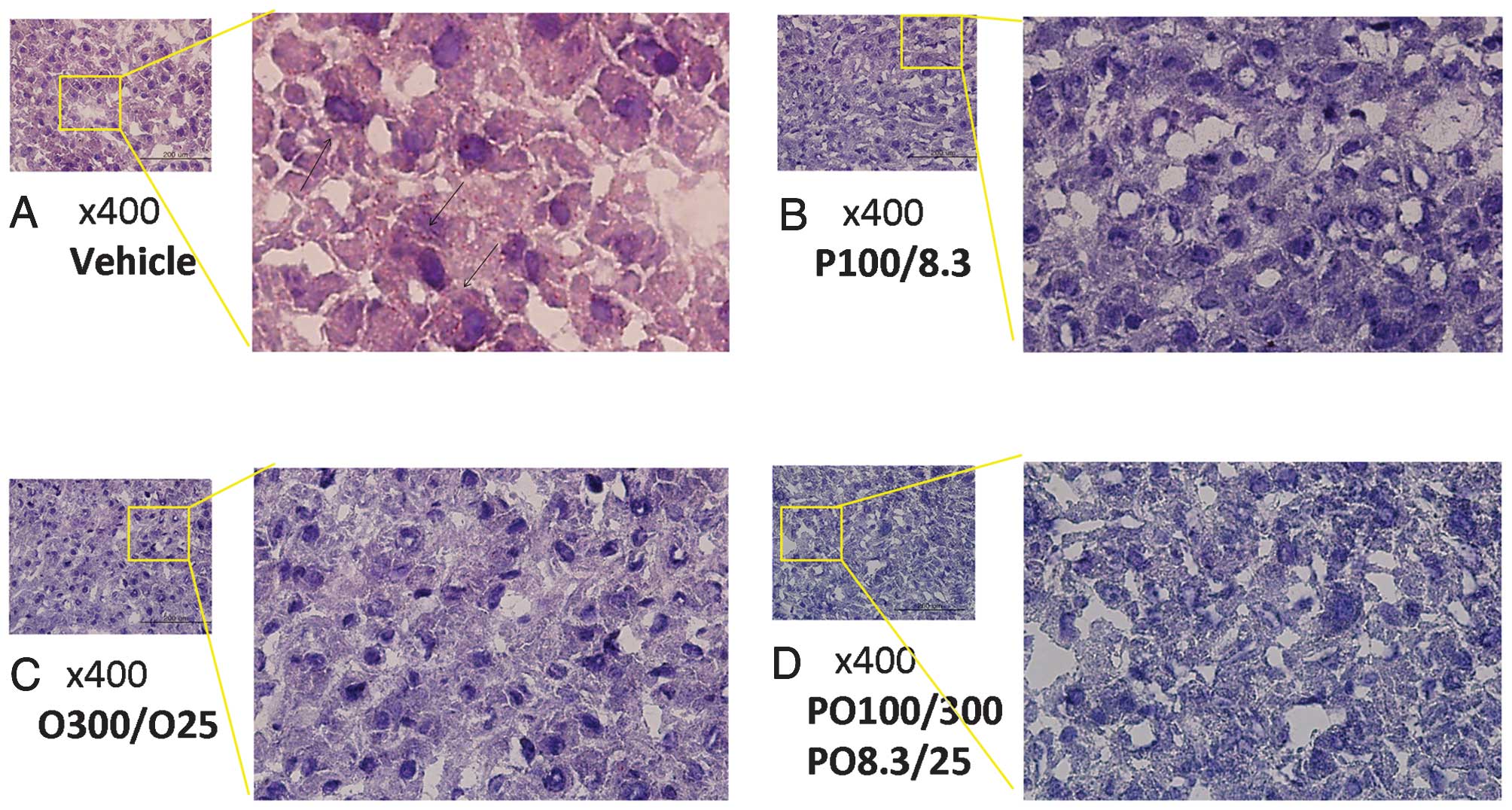|
1
|
Yokokawa H, Yasumura S, Tanno K, et al:
Serum low-density lipoprotein to high-density lipoprotein ratio as
a predictor of future acute myocardial infarction among men in a
2.7-year cohort study of a Japanese northern rural population. J
Atheroscler Thromb. 18:89–98. 2011.
|
|
2
|
Bae JM, Yang YJ, Li ZM and Ahn YO: Low
cholesterol is associated with mortality from cardiovascular
diseases: a dynamic cohort study in Korean adults. J Korean Med
Sci. 27:58–63. 2012. View Article : Google Scholar : PubMed/NCBI
|
|
3
|
Kim JE, Jeon SM, Park KH, et al: Does
Glycine max leaves or Garcinia Cambogia promote
weight-loss or lower plasma cholesterol in overweight individuals:
a randomized control trial. Nutr J. 10:942011.
|
|
4
|
Ingelsson E, Schaefer EJ, Contois JH, et
al: Clinical utility of different lipid measures for prediction of
coronary heart disease in men and women. JAMA. 298:776–785. 2007.
View Article : Google Scholar : PubMed/NCBI
|
|
5
|
Manninen V, Tenkanen L, Koskinen P, et al:
Joint effects of serum triglyceride and LDL cholesterol and HDL
cholesterol concentrations on coronary heart disease risk in the
Helsinki Heart Study. Implications for treatment. Circulation.
85:37–45. 1992. View Article : Google Scholar
|
|
6
|
Lowe ME: Molecular mechanisms of rat and
human pancreatic triglyceride lipases. J Nutr. 127:549–557.
1997.PubMed/NCBI
|
|
7
|
Lowe ME: The triglyceride lipases of the
pancreas. J Lipid Res. 43:2007–2016. 2002. View Article : Google Scholar : PubMed/NCBI
|
|
8
|
Aspedon A and Groisman EA: The
antibacterial action of protamine: evidence for disruption of
cytoplasmic membrane energization in Salmonella typhimurium.
Microbiology. 142:3389–3397. 1996. View Article : Google Scholar : PubMed/NCBI
|
|
9
|
Hosomi R, Fukunaga K, Arai H, Kanda S,
Nishiyama T and Yoshida M: Effect of dietary protamine on lipid
metabolism in rats. Nutr Res Pract. 4:462–469. 2010. View Article : Google Scholar : PubMed/NCBI
|
|
10
|
Zhang J, Kang MJ, Kim MJ, et al:
Pancreatic lipase inhibitory activity of Taraxacum
officinale in vitro and in vivo. Nutr Res Pract. 2:200–203.
2008. View Article : Google Scholar
|
|
11
|
Duarte-Vázquez MA, García-Padilla S,
Olvera-Ochoa L, et al: Effect of protamine in obesity induced by
high-fat diets in rats. Int J Obes (London). 33:687–692.
2009.PubMed/NCBI
|
|
12
|
Zhou TX, Chen YJ, Yoo JS, et al: Effects
of chitooligosaccharide supplementation on performance, blood
characteristics, relative organ weight, and meat quality in broiler
chickens. Poult Sci. 88:593–600. 2009. View Article : Google Scholar
|
|
13
|
Chae SY, Jang MK and Nah JW: Influence of
molecular weight on oral absorption of water soluble chitosans. J
Control Release. 102:383–394. 2005. View Article : Google Scholar : PubMed/NCBI
|
|
14
|
Choi BK, Kim KY, Yoo YJ, Oh SJ, Choi JH
and Kim CY: In vitro antimicrobial activity of a
chitooligosaccharide mixture against Actinobacillus
actinomycetemcomitans and Streptococcus mutans. Int J
Antimicrob Agents. 18:553–557. 2001. View Article : Google Scholar : PubMed/NCBI
|
|
15
|
Ju C, Yue W, Yang Z, et al: Antidiabetic
effect and mechanism of chitooligosaccharides. Biol Pharm Bull.
33:1511–1516. 2010. View Article : Google Scholar : PubMed/NCBI
|
|
16
|
Shon YH and Nam KS: Inhibition of
polyamine biosynthesis in Acanthamoeba castellanii and
12-O-tetradecanoylphorbol-13-acetate-induced ornithine
decarboxylase activity by chitosanoligosaccharide. Biotechnol Lett.
25:701–704. 2003. View Article : Google Scholar : PubMed/NCBI
|
|
17
|
Cho SY, Lee JH, Song MJ, et al: Effects of
chitooligosaccharide lactate salt on sleep deprivation-induced
fatigue in mice. Biol Pharm Bull. 33:1128–1132. 2010. View Article : Google Scholar : PubMed/NCBI
|
|
18
|
Suzuki K, Mikami T, Okawa Y, Tokoro A,
Suzuki S and Suzuki M: Antitumor effect of
hexa-N-acetylchitohexaose and chitohexaose. Carbohydr Res.
151:403–408. 1986. View Article : Google Scholar : PubMed/NCBI
|
|
19
|
Choi CR, Kim EK, Kim YS, et al:
Chitooligosaccharides decreases plasma lipid levels in healthy men.
Int J Food Sci Nutr. 63:103–106. 2012. View Article : Google Scholar : PubMed/NCBI
|
|
20
|
Hayashi K and Ito M: Antidiabetic action
of low molecular weight chitosan in genetically obese diabetic
KK-Ay mice. Biol Pharm Bull. 25:188–192. 2002. View Article : Google Scholar : PubMed/NCBI
|
|
21
|
Tang ZR, Yin YL, Nyachoti CM, et al:
Effect of dietary supplementation of chitosan and
galacto-mannan-oligosaccharide on serum parameters and the
insulin-like growth factor-I mRNA expression in early-weaned
piglets. Domest Anim Endocrinol. 28:430–441. 2005. View Article : Google Scholar : PubMed/NCBI
|
|
22
|
Tsujita T, Matsuura Y and Okuda H: Studies
on the inhibition of pancreatic and carboxylester lipases by
protamine. J Lipid Res. 37:1481–1487. 1996.PubMed/NCBI
|
|
23
|
Gors S, Kucia M, Langhammer M, Junghans P
and Metges CC: Technical note: milk composition in mice -
methodological aspects and effects of mouse strain and lactation
day. J Dairy Sci. 92:632–637. 2009. View Article : Google Scholar : PubMed/NCBI
|
|
24
|
Kang NH and Choi KC: 207 engineered human
amniotic fluid-derived stem cells by expressing cytosine deaminase
(cd) and thymidine kinase (hsv-tk) mediate targeting killing effect
in breast cancer cells. Reprod Fertil Dev. 24:2162012. View Article : Google Scholar
|
|
25
|
Kang NH, Yi BR, Lim SY, et al: Human
amniotic membrane-derived epithelial stem cells display anticancer
activity in BALB/c female nude mice bearing disseminated breast
cancer xenografts. Int J Oncol. 40:2022–2028. 2012.
|
|
26
|
Kim KY, Yi BR, Lee HR, et al: Stem cells
with fused gene expression of cytosine deaminase and interferon-β
migrate to human gastric cancer cells and result in synergistic
growth inhibition for potential therapeutic use. Int J Oncol.
40:1097–1104. 2012.PubMed/NCBI
|
|
27
|
Haslam DW and James WP: Obesity. Lancet.
366:1197–1209. 2005. View Article : Google Scholar : PubMed/NCBI
|
|
28
|
Wang H and Peng DQ: New insights into the
mechanism of low high-density lipoprotein cholesterol in obesity.
Lipids Health Dis. 10:1762012. View Article : Google Scholar : PubMed/NCBI
|
|
29
|
Poirier P, Giles TD, Bray GA, et al:
Obesity and cardiovascular disease: pathophysiology, evaluation,
and effect of weight loss: an update of the 1997 American Heart
Association Scientific Statement on Obesity and Heart Disease from
the Obesity Committee of the Council on Nutrition, Physical
Activity, and Metabolism. Circulation. 113:898–918. 2006.
|
|
30
|
Hosomi R, Fukunaga K, Arai H, Nishiyama T
and Yoshida M: Effects of dietary fish protein on serum and liver
lipid concentrations in rats and the expression of hepatic genes
involved in lipid metabolism. J Agric Food Chem. 57:9256–9262.
2009. View Article : Google Scholar : PubMed/NCBI
|
|
31
|
Moriyama T, Kishimoto K, Nagai K, et al:
Soybean beta-conglycinin diet suppresses serum triglyceride levels
in normal and genetically obese mice by induction of
beta-oxidation, downregulation of fatty acid synthase, and
inhibition of triglyceride absorption. Biosci Biotechnol Biochem.
68:352–359. 2004. View Article : Google Scholar : PubMed/NCBI
|
|
32
|
Artenie R, Ungureanu D, Artenie A,
Botnariu G and Anisie E: HDL-cholesterol - active or passive
participant in the pathogenesis of atherosclerosis. Rev Med Chir
Soc Med Nat Iasi. 107:282–287. 2003.(In Romanian).
|
|
33
|
Sancho-Rodriguez N, Avilés-Plaza FV,
Granero-Fernandez E, et al: Observational study of lipid profile
and LDL particle size in patients with metabolic syndrome. Lipids
Health Dis. 10:1622011. View Article : Google Scholar : PubMed/NCBI
|
|
34
|
Shah PK, Kaul S, Nilsson J and Cercek B:
Exploiting the vascular protective effects of high-density
lipoprotein and its apolipoproteins: an idea whose time for testing
is coming, part I. Circulation. 104:2376–2383. 2001. View Article : Google Scholar
|
|
35
|
Gotto AM Jr, Whitney E, Stein EA, et al:
Relation between baseline and on-treatment lipid parameters and
first acute major coronary events in the Air Force/Texas Coronary
Atherosclerosis Prevention Study (AFCAPS/TexCAPS). Circulation.
101:477–484. 2000. View Article : Google Scholar
|



















